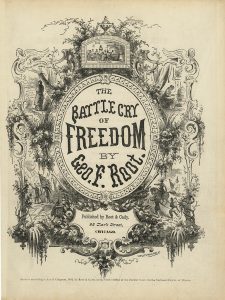
As Chicago celebrates the Year of Chicago Music, here's a look at one aspect of the city's rich musical heritage.
Today, Chicago is best known for blues, gospel or house music, but 158 years ago a rousing march or heartfelt ballad was in high demand. In fact, Chicago music publisher Root & Cady became a household name with its song in response to President Lincoln's July 1862 call for an additional 300,000 volunteers to serve the Union Army. George F. Root's "Battle Cry of Freedom" was an instant success. Northern audiences and soldiers sang, "Yes we'll rally around the flag..." as quickly as the young publishing company could keep up with demand. It's estimated that up to 700,000 copies of the song were printed during the Civil War era. By today's standards, it would be a gold record.
Root & Cady followed up this success with marches, ballads, polkas, duets and other types of songs to honor war heroes, inspire troops and motivate home-front relief efforts. These songs also tell the stories of the war. "Tramp! Tramp! Tramp!" was a popular prison tune written in 1864 to lift the spirits of Union soldiers held in Confederate camps. The song's 1865 sequel, "On, On, On, The Boys Came Marching!," celebrated the liberation of the prisoners through the efforts of General Sherman and others.
Significantly, Root & Cady also produced music that spoke to the war's aim to end slavery. Written by abolitionist Henry C. Work in 1863, "Babylon Is Fallen!" attempted to imagine the perspective of the black U.S. soldiers who fought for the Union. Provocative for its age, the cover illustration depicts seven armed African Americans aiming their weapons at a fleeing plantation owner. While admirable for all of its emancipatory zeal, today's audiences would find the heavy dialect used in the lyrics inappropriate.
These same Chicago music publishers also remembered and supported their own local heroes and volunteers. Root & Cady wrote a requiem march to honor Col. Elmer E. Ellsworth, the Chicago law clerk who outfitted his regiment in Zouave-style uniforms and who reportedly was the first Union officer to die. Competing Chicago music publisher H.M. Higgins used humor and sarcasm to inspire camaraderie among the men of the 90th Illinois Infantry Regiment, also known as the Irish Legion. Titled "We Are the Gay & Happy Suckers of the State of Illinois," the song references meal rations of hardtack, a salty biscuit with the consistency of a jawbreaker, and implores the ladies back home to wait to "be a soldier's bride." Mustered into service on September 7, 1862, and led by Col. Stewart, the regiment lost 148 men (out of a thousand) in the war. The song's universal theme of homesickness among deployed soldiers likely rings just as true today.
Despite being hit-makers throughout the 1860s, Chicago's music publishers lost the battle with the Great Fire of 1871, when their Loop-area shops went up in flames. Their songs, however, survive and put a melody to Civil War history. Visit Special Collections at Harold Washington Library Center to hum along with more Civil War Sheet Music.

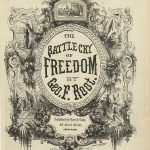
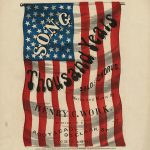
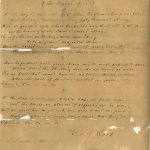
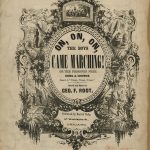
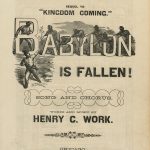
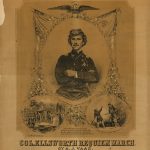
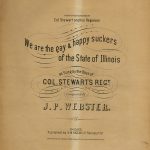
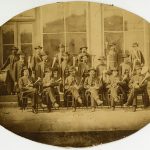

Add a comment to: Civil War Hit Songs Originated in Chicago